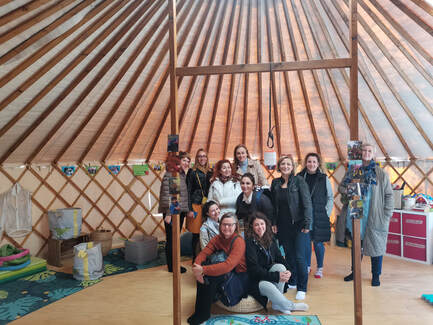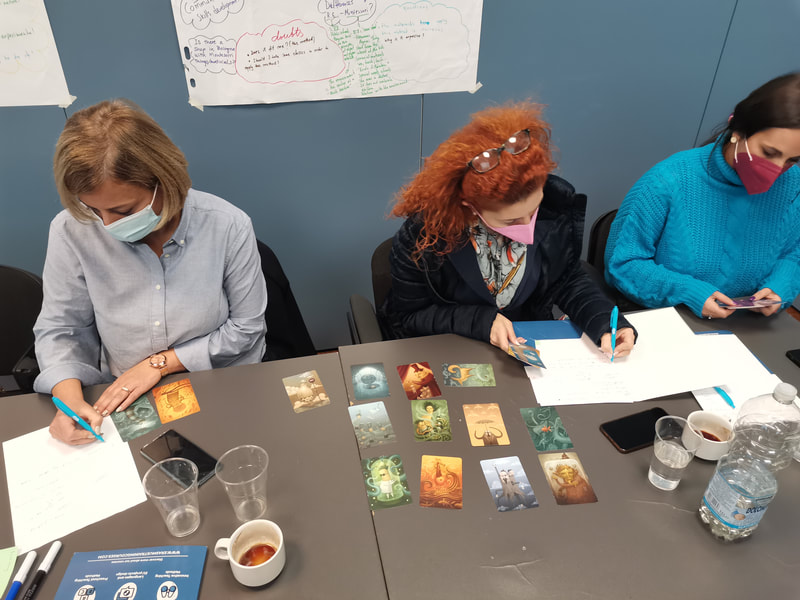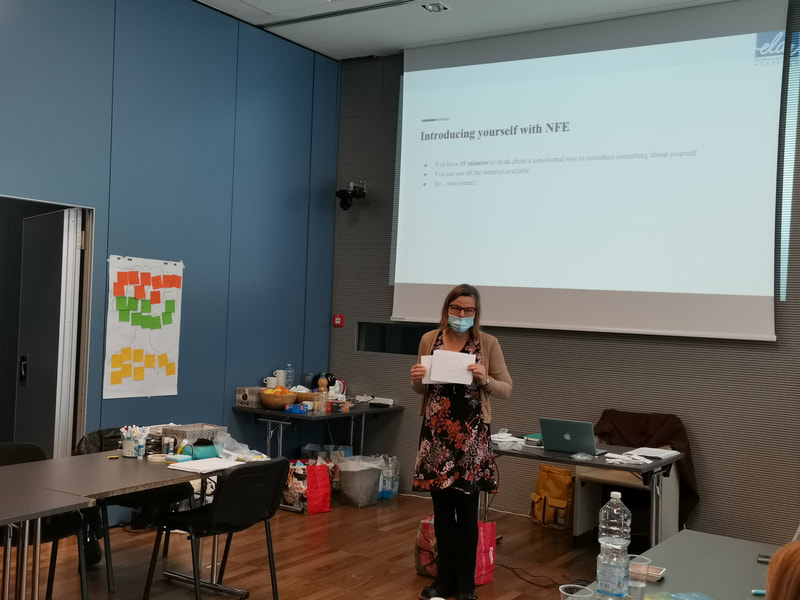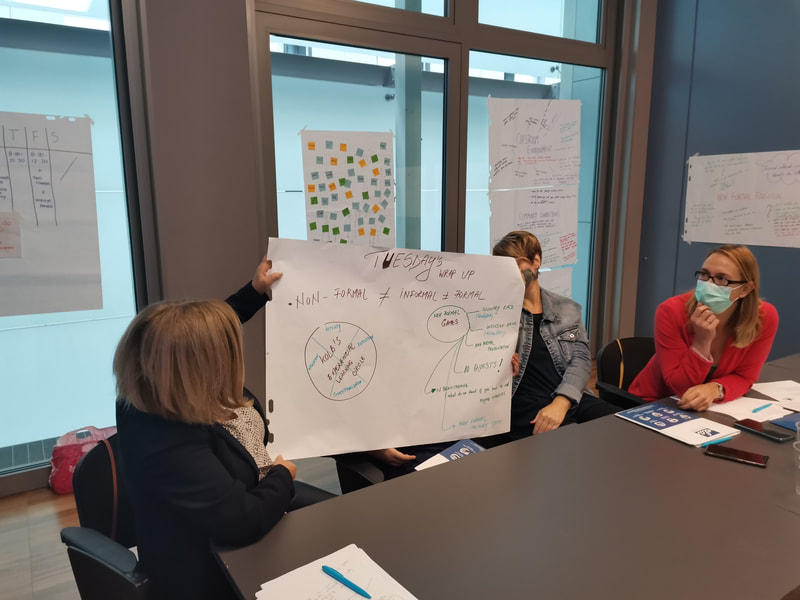 On the 31st of October we once again welcomed preschool teachers from all over Europe to share with them our best methods of teaching. We were pleased to meet participants from Greece, Spain, Romania, Latvia, and Denmark. After a day of exploring Bologna and its seven secrets, it was time to get to work. On Monday we made sure that everyone was on the same page with the use of a tree model. We filled out three categories - our fears, expectations, and our contribution to the group. This started a lengthy discussion about everyone’s experiences and knowledge about topics at hand. The next day we focused on the importance of teaching in a playful way. As one of the participants stated, if you have joy, you have interest to learn. The main task of the day was to to introduce non-formal education in the classroom. The teachers had to come up with a creative way to introduce themselves to the group, and we got to witness a lot of dancing, singing, presenting collages, and even poetry! That day we were also introduced to Kolb’s experiential teaching cycle - we wanted to show the participants how to make sure that their kids remember what they learned. The day finished with an activity that helped expand our empathy and awareness of inclusion…always remember: everyone is important, different, and brings something to the table. On Wednesday we had the pleasure to speak with a teacher from a Montessori school in Bologna, who showed us the back door of using this method of teaching. She told us about how the teachers don’t interfere with the child’s natural learning cycle, and they let them learn from their achievements and mistakes. The reality of this way of teaching was interesting to see, as it was hard to imagine how to let children make deliberate mistakes, and then learn from them - all in a safe way. Before the wrap up on Friday, we took the participants to explore an outdoor education school. It was fascinating to see how you can incorporate a child’s need for nature into everyday life. We were met with mud kitchens, anger targets on trees, common room tipis, collective gardens, and many more wonderful experiences. Giulia, one of the educators, was very welcoming with us, answering all our questions and doubts. Lastly, we explored the Reggio Emilia approach, talking about the history, the most important elements and key words. We showed the groups pictures, video and documentations from the Reggio Centre and from different kindergarten in Reggio Emilia.
By the end of the week, our participants had great insight into a few different teaching approaches in Italy, and we can say with confidence that they left the course with many, many ideas. |
Welcome to the ELA Blog. Here you will find articles and photos of our courses and have a look at the topics addressed during the week in Bologna, Palermo and Tenerife. You will also have the chance to take a peek at our projects and check out what we have been up to.
Archives
July 2024
Categories |
-
Course catalogue
- 2023-2024 course catalogue
- Soft Skills >
- ICT and New Technologies >
- Inclusion and Diversity >
-
Innovative Teaching Methods
>
- Innovative teaching methods discovery
- Non-formal education teaching methods
- Dual education and work-based learning
- Teaching leadership and entrepreneurship
- Project based learning
- Game based learning and gamification
- Green skills
- Outdoor education
- Outdoor education trekking edition
- Promoting creativity and critical thinking
- Languages and EU projects >
- Preschool >
- Erasmus Plus KA1
- What we do
- About us
- Locations
- Blog
- Contact us
 English
English български
български Čeština
Čeština Español
Español Français
Français ελληνικά
ελληνικά Italiano
Italiano Polski
Polski Português
Português Română
Română


 RSS Feed
RSS Feed









